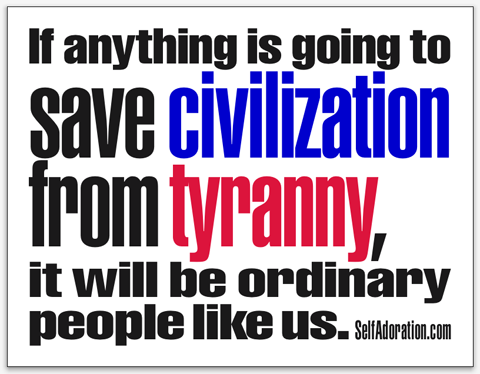 Will Republicans repeal Obamacare next January — or ever? Don’t hold your breath. Mainstream politicians of both parties are addicted to corporate campaign contributions — and who knows what other kinds of bribes? — so what we will get will be a pathetic, cosmetic “reform” of Rotarian Socialist medicine. Meet the new boss, same as the old boss.
Will Republicans repeal Obamacare next January — or ever? Don’t hold your breath. Mainstream politicians of both parties are addicted to corporate campaign contributions — and who knows what other kinds of bribes? — so what we will get will be a pathetic, cosmetic “reform” of Rotarian Socialist medicine. Meet the new boss, same as the old boss.
If you want to restore the liberty of the American people, you will need to change the United States Constitution. And you will have to do that by constitutional convention and state-by-state ratification, because there is no way that Congress will vote for the necessary changes.
In a very short summary, here is what needs to be done, if the head of steam built up by libertarians, by free-market conservatives and by the Tea Party movement is not to be wasted. The text within the quotation marks is proposed amendatory language, followed by a discussion of the objective to be achieved.
1. “The words ‘general welfare’ appearing in the United States Constitution or its Amendments do not create any powers of the legislative, executive or judicial branches of the government of the United States. Any legislation authorized by the words ‘general welfare’ is repealed.” This gets rid of one of the most pernicious pieces of federal elasticity.
2. “Article 1, Section 8, Clause 3 of the United States Constitution is stricken in its entirety. Any legislation authorized by that clause is repealed.” This does away with the power of the federal government to regulate commerce. The interstate commerce clause is second only to the general welfare clause as a means of enlarging the power of the national government.
3. “Amendment 16 to the United States Constitution is stricken in its entirety. Any legislation authorized by that Amendment is repealed.” Goodbye federal income tax. The federal government will have to return to taxation by capitation — the head tax.
4. “Amendment 17 to the United States Constitution is stricken in its entirety. Any legislation authorized by that Amendment is repealed.” This language puts the Senate back under the control of the states. This was a vital check on federal power. Read more



